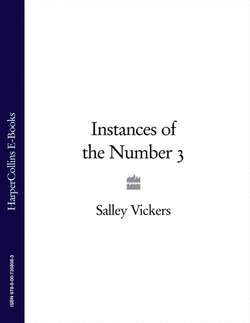Читать книгу Instances of the Number 3 - Salley Vickers - Страница 19
13
ОглавлениеIf an impression has been given that Peter Hansome was not a particularly brave man it would be misleading. At boarding school he passed through the ordeal of separation from home and familiars without even the sharpest-eyed, and most malicious, of his peers noticing that the experience left him feeling he was bleeding alive. More heroic still, he resisted the urge to find relief from his own despair by joining in with tormenting those less successful at concealment. He became popular, up to a point, never reaching that pinnacle of popularity which, from the start, attends the lucky—if luck is what it is. And ‘luck’ made up no conspicuous part of Peter Hansome’s history.
Once we are in the way of losing things, life seems to determine that other goods shall go: having lost his father Peter went on to lose his mother, to a Member of Parliament who chose Peter’s siblings, Marcus and Clare, as the foci of his step-parental care.
There is a kind of person who, if aware that an affection is not directed towards them, will set out to destroy it. With the acuity of the sadistic, Evelyn Hansome’s second husband recognised the deep link between his wife and her second son. Such bonds between mothers and sons are not uncommon—nineteenth-century fiction depends upon them; but they should not, for that reason, be dismissed as unreal. Peter watched his mother falter in her expressions of love towards him and knew that she did so, not through any dereliction but through the desire to protect him. But understanding does not necessarily dispel reaction: as the mother became guarded, so did the son. When his stepfather died it was difficult for Peter to find a way back to any spontaneous expression of feeling.
By the time he reached Cambridge Peter presented to the world the character of a conventional public schoolboy. He was rangy and, on the surface at least, good-humoured. Differences from others he expressed in minor, socially acceptable ways, by changing subjects from history to anthropology, for example. About this time he made friends with his father who, when Peter left university, celebrated the event by taking his son to a Soho strip joint. Peter responded to the prominent breasts and buttocks with an excited fascination he later defined to himself as loathing—though whether it was the naked gleaming girls or the profusely sweating figure of his father beside him which produced this reaction he could not have said. These uneasy emotions he ascribed to feelings of loyalty to his mother. It was the last year of conscription and he was about to leave for military service.
He went to serve in Malaya, where he learned to command men and issue orders. And it was in Malaya that Peter Hansome first fell in love.
